Science for health
Nicolaus Copernicus University in Toruń, Kazimierz Wielki University in Bydgoszcz and the Oncology Centre in Bydgoszcz want to jointly use the latest advances in various scientific disciplines to improve the quality of patient treatment. The authorities of the three institutions signed a letter of intent to this effect on Friday.
The document was signed by prof. dr habil. Andrzej Tretyn, Rector of NCU, prof. dr habil. Bernard Mendlik, Rector of KWU and prof. dr habil. Janusz Kowalewski, the Director of the Oncology Centre.
The agreement confirms that all parties wish to cooperate 'in the field of modern technologies, in particular medical technologies supporting the development of innovative diagnostic, therapeutic and educational methods'. The signatories will aim to initiate joint research and scientific projects, exchange experiences and implement modern technologies in line with sustainable development. They want to develop advanced solutions for translational medicine [using the latest developments from various scientific disciplines to improve the quality of patient treatment - editor's note], including analytical and diagnostic methods based on artificial intelligence, biomedical engineering and 3D bioprinting. The institutions plan to establish an education and training centre to support the development of the teaching competencies of specialists in the area of modern medical technology. In addition, they will jointly promote interdisciplinary cooperation and integrate scientific activities to improve diagnostics, therapy and medical care.
– The aim of this project is to shorten the path between an original idea, innovation and the implementation of a new concept into clinical practice,' says Professor Janusz Kowalewski. - We want to establish something that does not exist on the map of the Kujawsko-Pomorskie Voivodeship: a structure for modern, collaborative translational medicine. It seems to me that our patients will be happy with this, and our scientists will be proud that their ideas, their initiatives are being translated into concrete medical goals. In essence, the idea is that the beneficiary of this cooperation should be the sick person, who should have the right to benefit as soon as possible from modern technical achievements and technologies.
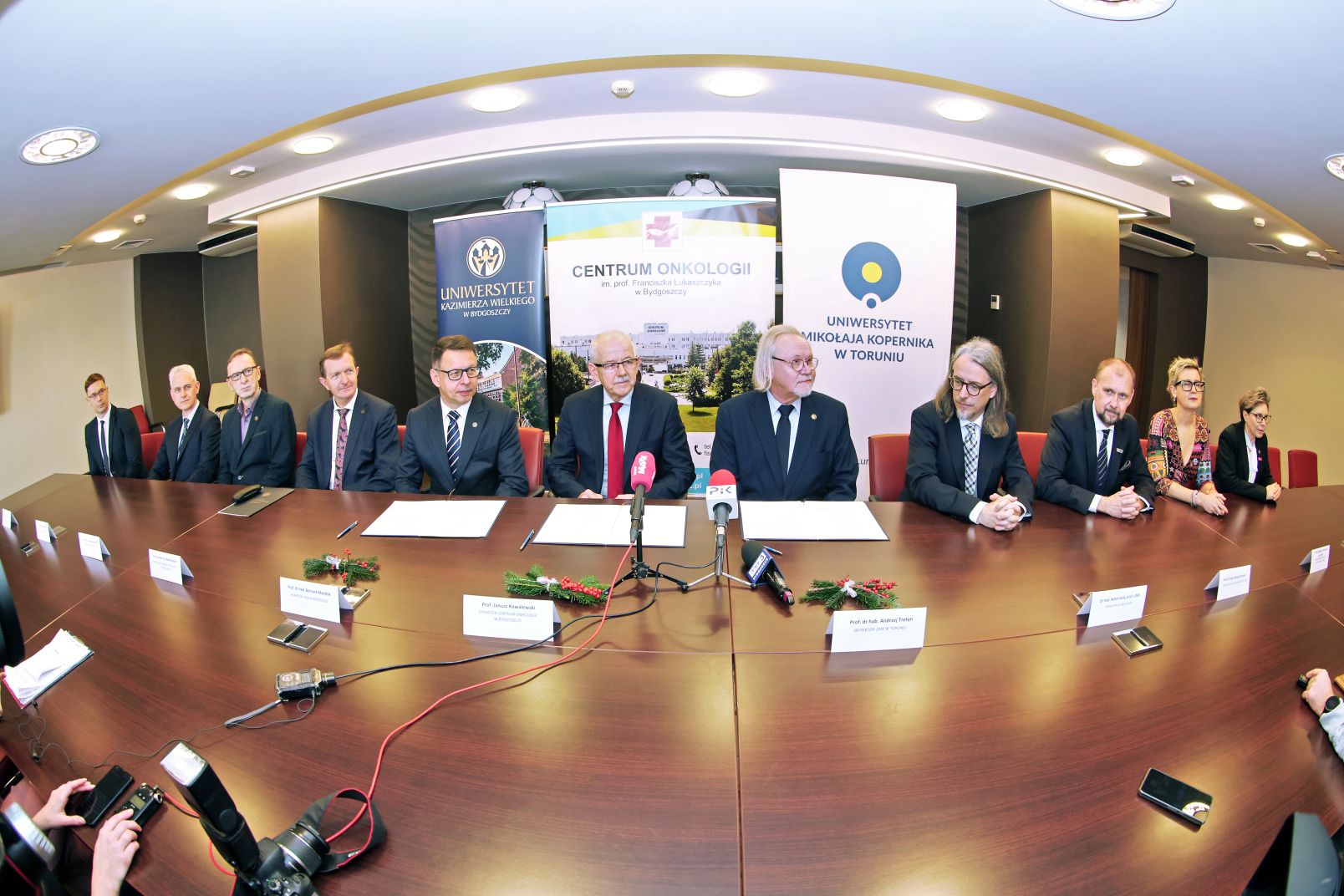
fot. Andrzej Romański
Professor Andrzej Tretyn emphasised the research potential that both universities bring to the cooperation: - NCU and KWU are broad-profile universities with a very large scientific and research base - the NCU Rector pointed out.
The Vice-Rector for Science at the Nicolaus Copernicus University, dr habil. Adam Kola, NCU Prof., reminded that the agreement is a bottom-up initiative of employees who have been working together for years. He also pointed out that, in addition to better patient care, the regional nature of the venture, which is not an initiative of either Bydgoszcz or Toruń, but a joint one, is important.
We are talking about a certain continuum, a certain logic of events, i.e. a combination of pre-clinical and clinical research and the implementation of basic research that is going on in all our units, in order to use it directly in the clinic - says dr habil. Dariusz Grzanka, NCU Vice-Rector for Collegium Medicum. - Translational medicine means using the facilities of medical, chemical, biological and physical research to implement solutions as quickly as possible, to understand disease mechanisms, and to use the results in patient care.
Professor Grzanka pointed out that NCU, KWU and Oncology Centre create not only a platform for the use of basic research, a kind of pre-clinical research facility, but also have another stage to offer - clinical research. - At this stage, new therapies, ways of diagnosis, understanding different aspects of the disease need to be tested to see if they can be used safely to treat people, explains the Vice- Rector for the NCU Collegium Medicum. - On Thursday, we learned that we have received more than PLN 14 million in funding for the Clinical Research Support Centre. Both platforms make it possible to use the potential of our researchers, doctors, to test, invent and create new therapies that, when tested in our facilities, in safe conditions, will give the possibility of the fastest, most appropriate and, in fact, the world's treatment.
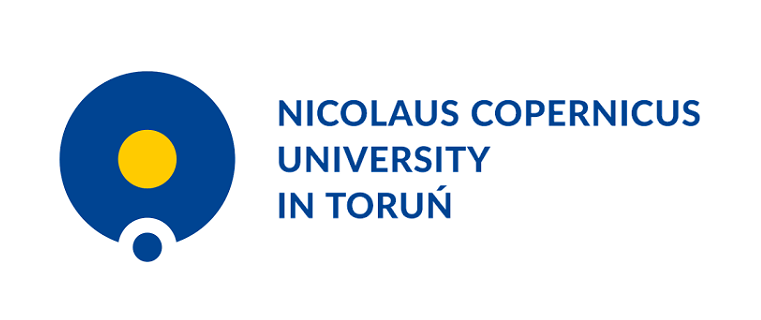 NCU News
NCU News






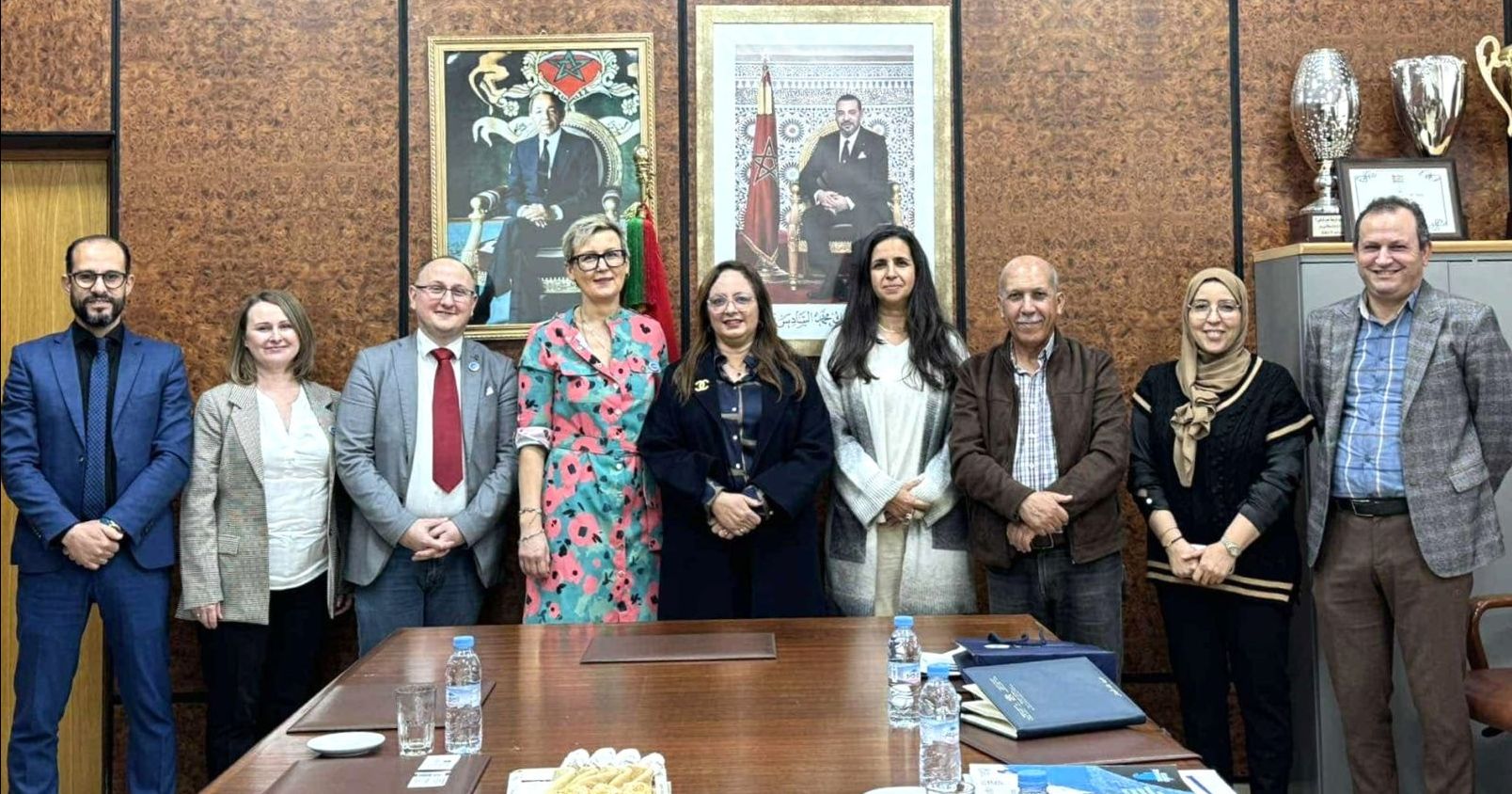 Campus life
Campus life
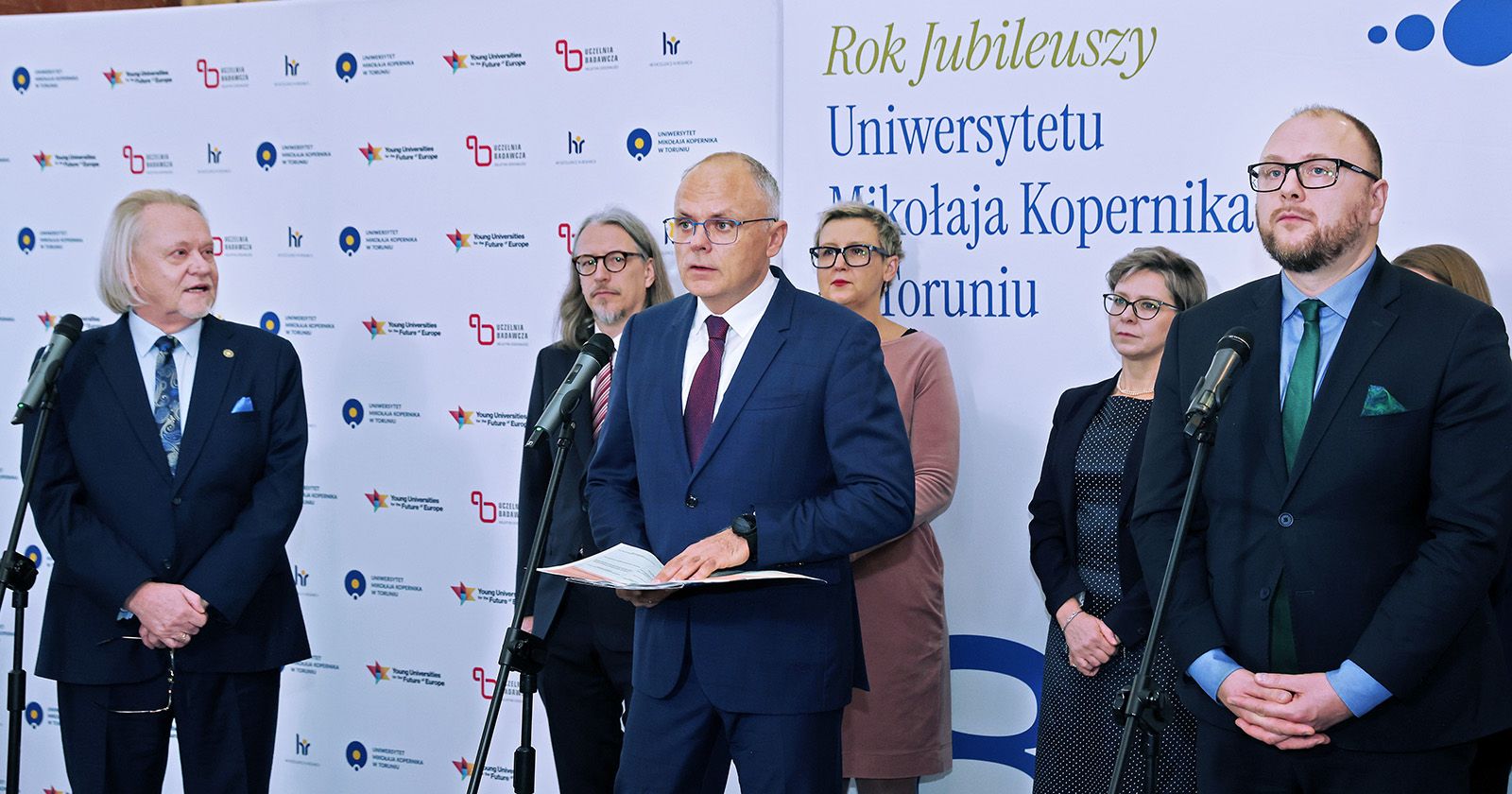 Campus life
Campus life

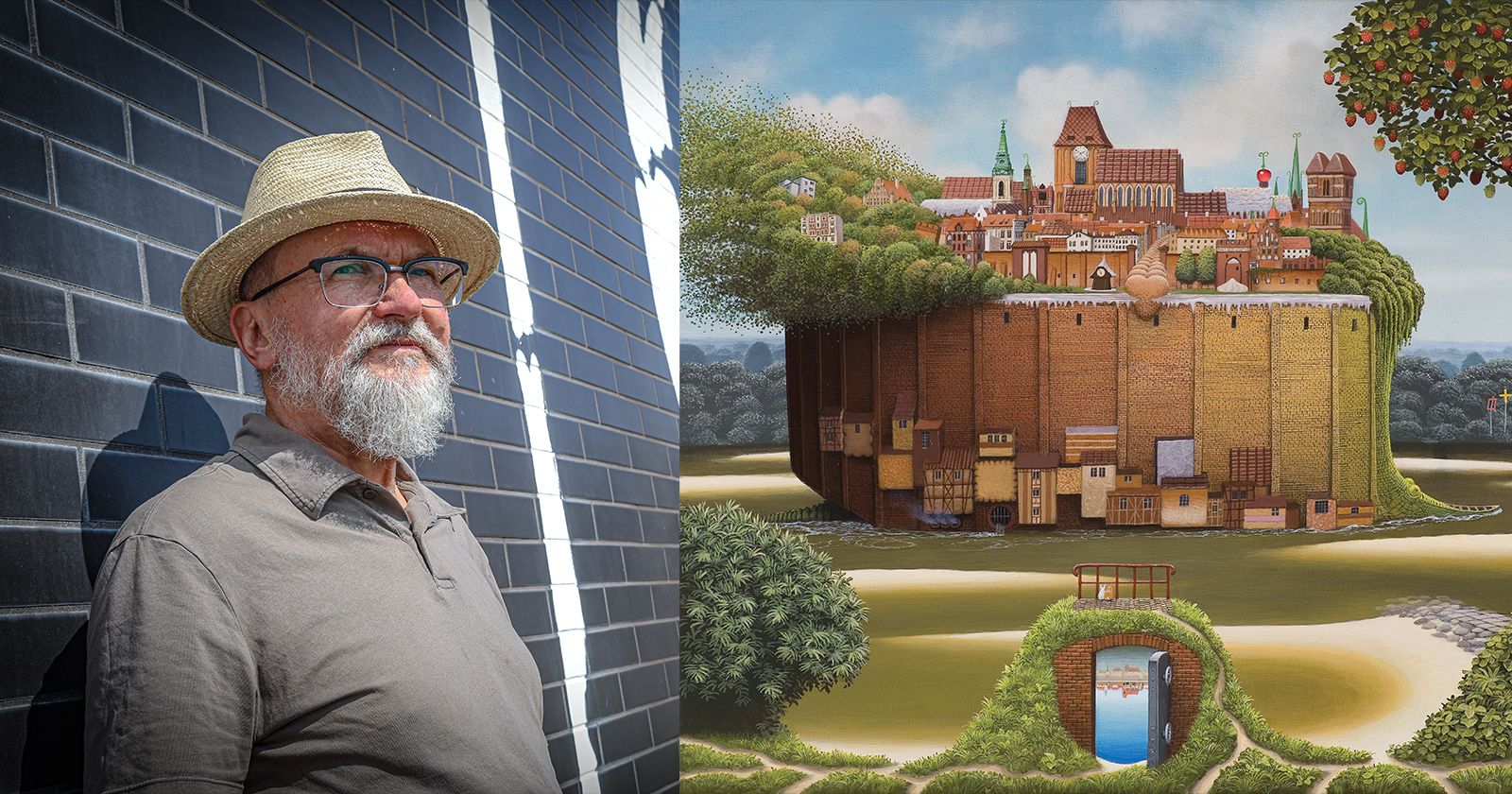 Culture
Culture

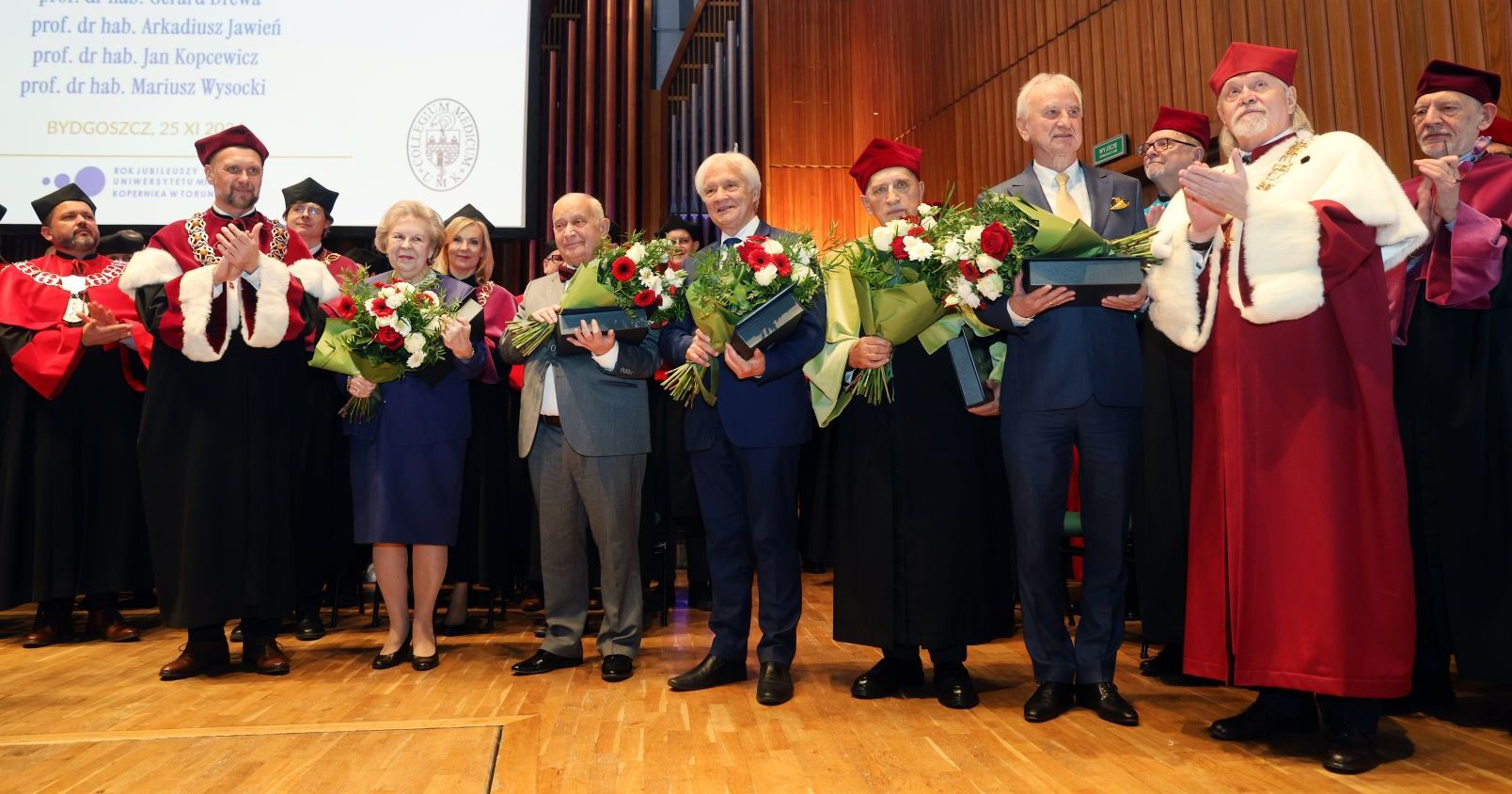 Campus life
Campus life